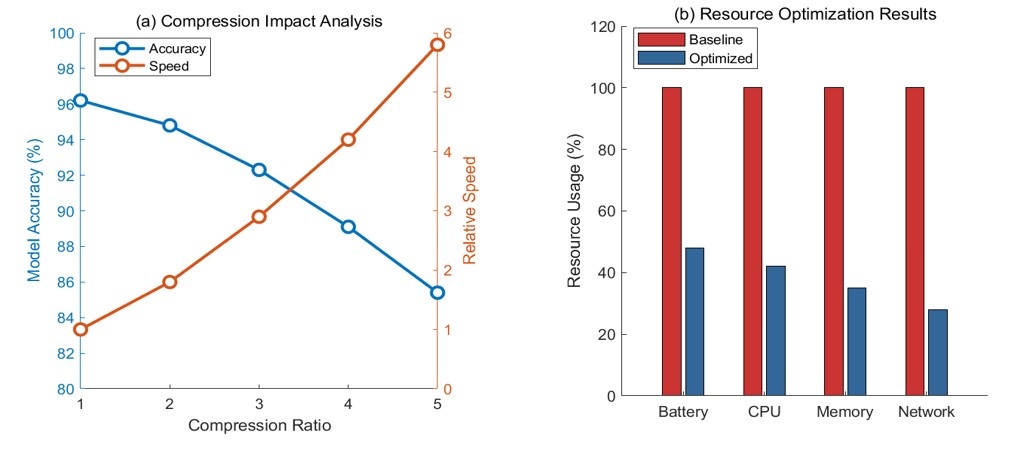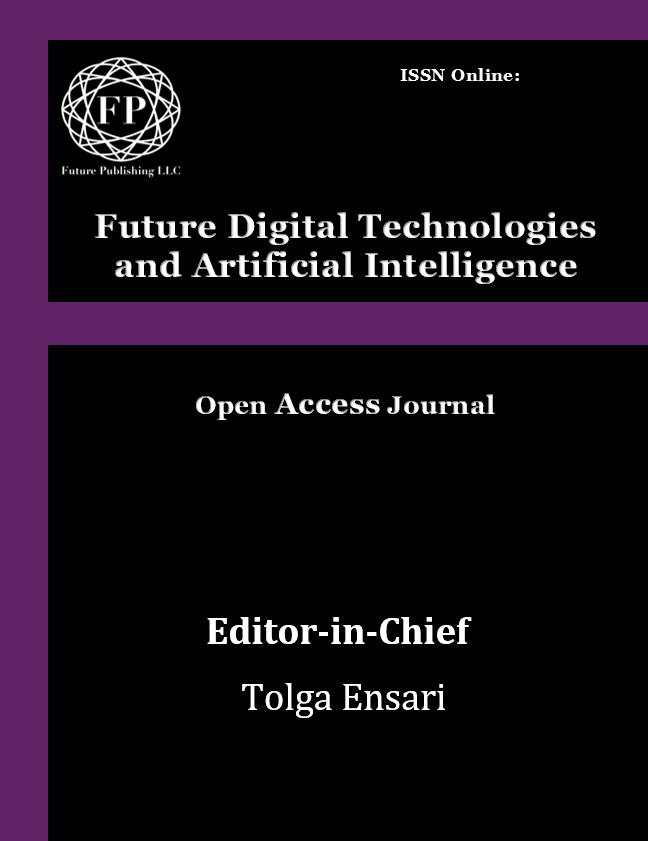Empowering vocational education in Africa through AI and deep learning technologies
Keywords:
Artificial intelligence, Deep learning, Vocational education, Workforce development, Adaptive learningAbstract
Vocational schools in Sub-Saharan Africa face critical challenges, including inadequate equipment, insufficient funding, and curricula misaligned with industry needs. This study explores how artificial intelligence (AI) and deep learning address these challenges through empirical research in Nigeria and Kenya. The research tests adaptive learning systems with 742 students, comparing AI-enhanced with traditional methods. Results demonstrate 68% faster skill acquisition (t=4.82, p<0.01, d=0.68) and improved job readiness (χ²=18.3, p<0.05). Model compression to 45-75MB enables deployment on basic smartphones while maintaining 92% accuracy. Implementation includes mobile-first platforms tested in three Nigerian vocational centers and automated skill recognition systems deployed in two Kenyan technical schools. The findings confirm that properly localized AI solutions can transform vocational training in resource-limited contexts, though sustainability challenges remain.
References
Bischoff, C., Kamoche, K., & Wood, G. (2024). The Formal and Informal Regulation of Labor in AI: The Experience of Eastern and Southern Africa. ILR Review, 77(5), 825-835. https://doi.org/10.1177/00197939241278956c
Murthi, M., Seppo, M., & Chakroun, B. (2023). Building Better Formal TVET Systems: Principles and Practice in Low- and Middle-Income Countries. World Bank, ILO, and UNESCO Joint Publication. https://documents1.worldbank.org/curated/en/099071123130516870/pdf/P175566037a5e20650a657068b5152205bf.pdf
Adelani, D., Abbott, J., Neubig, G., & others. (2023). Natural Language Processing for African Languages: Progress and Challenges. Computational Linguistics, 49(2), 451-489.
Treve, M. (2024). Integrating Artificial Intelligence in Education: Impacts on Student Learning and Innovation. International Journal of Vocational Education and Training Research, 10(2), 61-69. https://doi.org/10.11648/j.ijvetr.20241002.14
García-Martínez, I., Fernández-Batanero, J. M., Fernández-Cerero, J., & León, S. P. (2023). Analysing the Impact of Artificial Intelligence and Computational Sciences on Student Performance: Systematic Review and Meta-analysis. Journal of New Approaches in Educational Research, 12(1), 171-197. https://doi.org/10.7821/naer.2023.1.1240
Ellikkal, A., & Rajamohan, S. (2024). AI-enabled Personalized Learning: Empowering Management Students for Improving Engagement and Academic Performance. Vilakshan-XIMB Journal of Management, 22, 28-44. https://doi.org/10.1108/XJM-02-2024-0023
Yan, J., Tian, H., Sun, X., & Song, L. (2025). Role of Artificial Intelligence in Enhancing Competency Assessment and Transforming Curriculum in Higher Vocational Education. Frontiers in Education, 10, Article 1551596. https://doi.org/10.3389/feduc.2025.1551596
Butcher, N., Wilson-Strydom, M., & Baijnath, M. (2021). Artificial Intelligence Capacity in Sub-Saharan Africa: Compendium Report. IDRC and UNESCO Publication. http://hdl.handle.net/10625/59999
Shiohira, K. (2021). Understanding the Impact of Artificial Intelligence on Skills Development. UNESCO-UNEVOC International Centre for Technical and Vocational Education and Training. https://eric.ed.gov/?id=ED612439
Amankwah-Amoah, J., & Lu, Y. (2024). Developing AI Leadership Capacity in Africa: The Role of Education, Training, and Mentorship Programs. Intergovernmental Research and Policy Journal, 8(2), 145-162.







